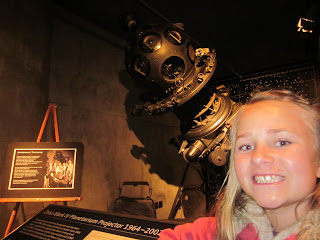President Reagan was leaving a speaking engagement at the Washington Hilton when six shots were fired at him and his staff. It took only 1.7 seconds for John Hinckley Jr. to unload all six explosive-tipped Devastator bullets. Three men – the President's press secretary, a Secret Service agent, and a Washington D.C. police officer – lay wounded as the President was rushed away. Initially, no one realized he had been hit as well, but when Special Agent Jerry Parr saw blood on Reagan's lips, he instructed the driver to head directly to George Washington University Hospital. His instincts saved the President's life.
 Del Quentin Wilber has written a riveting account of the events that day in Rawhide Down: The Near Assassination of Ronald Reagan. It is not an exhaustive detailing of every fact surrounding the incident, but is a readable narrative that is as hard to put down as any engrossing novel. He includes the experiences of dozens of agents, officers, medical personnel, and those in the Reagan Administration in a real-time manner as it unfolded. It is both moving and terrifying to view the assassination attempt from the perspective of those who were there. It is highly inspiring to see the reaction of those around him – Jerry Parr’s automatic response in protecting Reagan, agent Tim McCarthy who used his body to block the bullets, and the medical personnel who cared for him. It is also chillingly interesting to see the motives behind John Hinckley’s actions that day. Most of all it was nice to read of the way Reagan handled himself, from insisting on walking into the hospital to the jokes and words he used to offer comfort to others. The White House was very careful not to cause a panic and assure the nation that everything was under control, so we didn't know it then but President Reagan came very close to death that day - the bullet stopped only an inch away from his heart.
Del Quentin Wilber has written a riveting account of the events that day in Rawhide Down: The Near Assassination of Ronald Reagan. It is not an exhaustive detailing of every fact surrounding the incident, but is a readable narrative that is as hard to put down as any engrossing novel. He includes the experiences of dozens of agents, officers, medical personnel, and those in the Reagan Administration in a real-time manner as it unfolded. It is both moving and terrifying to view the assassination attempt from the perspective of those who were there. It is highly inspiring to see the reaction of those around him – Jerry Parr’s automatic response in protecting Reagan, agent Tim McCarthy who used his body to block the bullets, and the medical personnel who cared for him. It is also chillingly interesting to see the motives behind John Hinckley’s actions that day. Most of all it was nice to read of the way Reagan handled himself, from insisting on walking into the hospital to the jokes and words he used to offer comfort to others. The White House was very careful not to cause a panic and assure the nation that everything was under control, so we didn't know it then but President Reagan came very close to death that day - the bullet stopped only an inch away from his heart.My memories from 30 years ago were fuzzy and it was amazing to read of everything that occurred. I re-watched a video of the shooting online and was surprised to realize you could see the gun being fired and the wounded men going down - if they showed all that back then I certainly didn't remember it. I highly recommend this worthwhile book. (I received this book from Amazon Vine.)














